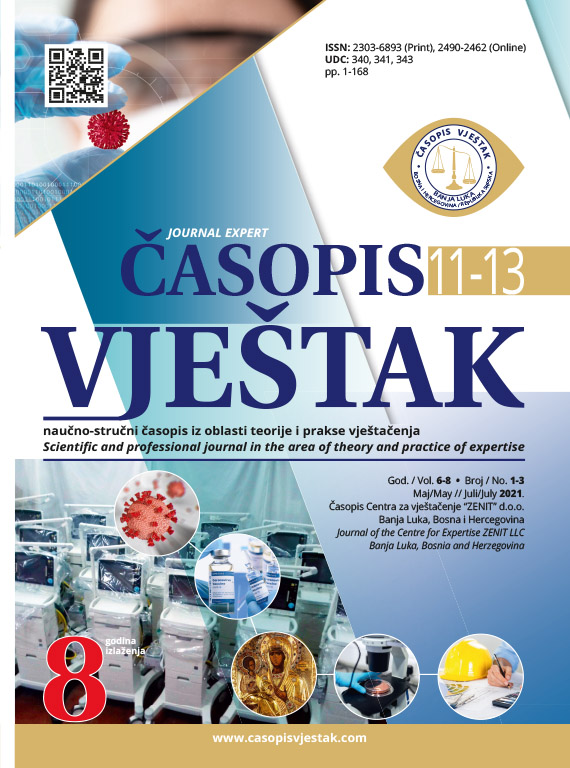European Arrest Warrant and European Integrations in Criminal Matter
Abstract
The European arrest warrant is an institution used by the judicial authorities of the Member States of the European Union to arrest and transfer persons who are in other Member States of the European Union, for the purpose of criminal prosecution or execution of criminal sanctions, detention and other measures of restraints, which imply the limitation of freedom within the boundaries necessary to achieve the purpose for which it is issued. The purpose of introducing this order is to mitigate the strict formalism of the traditional extradition system and to replace the classical model with a progressive system of extradition, which confirms the mutual trust of states in the decisions of national judicial bodies. The goal is to build a common judicial space for the Member States of the European Union. In this way, the states to some extent renounce a part of their sovereignty, for the purpose of higher general interests and accessibility to justice for everyone and under equal conditions. In this context, of great importance for the implementation of the European Arrest Warrant is the cooperation that is carried out through national authorities, as well as specialized bodies of the European Union such as Europol, Eurojust, the European Judicial Network (EAJ) and others.
The order implies mutual respect and recognition between the Member States of the European Union in the field of international criminal law. The European Union, i.e. the Member States, as well as the national courts are obliged to ensure respect for the fundamental rights of arrested persons, as well as the provisions of the European Convention for the Protection of Human Rights and Fundamental Freedoms. Every person arrested on the basis of a European Arrest Warrant has the right to a lawyer, as well as an interpreter if he/she does not understand the reasons why he/she was arrested, all in accordance with the laws of the country in which he/she was arrested.
